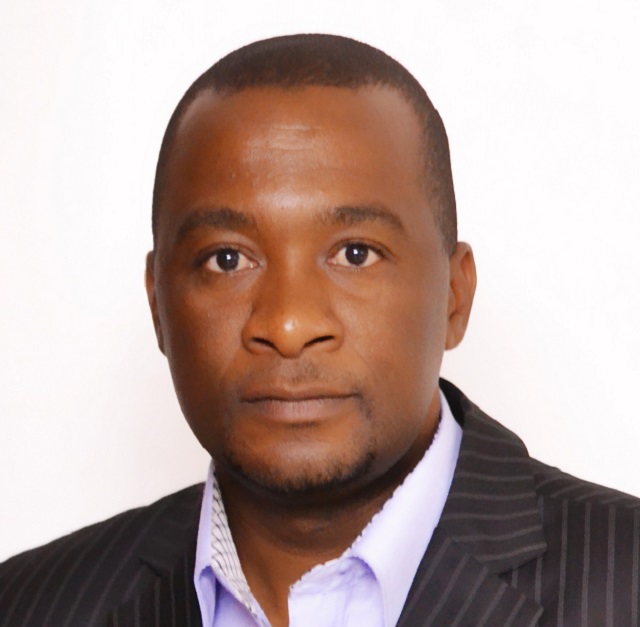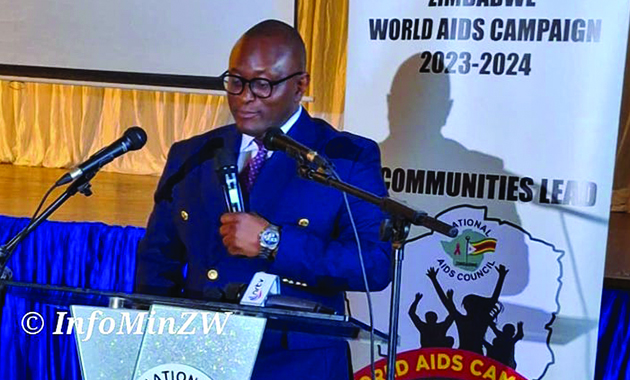Doctors condemn discriminatory travel bans

Chronicle Reporter
LOCAL doctors have joined global health experts and the African Union (AU) in condemning the travel ban imposed on Zimbabwe and other Sadc countries by the UK, United States and European Union (EU) following the emergence of a new Covid-19 variant.
Zimbabwean doctor, Dr Sikhulile Moyo has been credited as the leader of the medical team based in Botswana that was the first to successfully sequence the new Covid-19 variant, Omicron.
The sequencing published by Dr Moyo and his team was quickly followed by the publishing of sequencing from the team of South African doctors and researchers.
Dr Moyo is the deputy laboratory director at the Botswana-Harvard Aids Institute Partnership (BHP) and his team the first to sequence the Covid-19 variant B.1.1.529 which was then named Omicron by the World Health Organisation.
The new variant was first identified in samples collected on November 11 in Botswana and on November 14 in South Africa, during routine genomic surveillance of SARS-CoV-2, which was followed by immediate contact tracing.
As of November 28, cases of the Omicron variant of coronavirus have been confirmed in South Africa, Botswana, UK, Netherlands, Germany, Hong Kong, Italy, Belgium, Israel, Denmark, Austria, Czech Republic, Australia, Canada and Portugal.
Yet across the world travel bans have mostly been instituted for travellers from Southern African countries.
Zimbabwe, South Africa, Botswana, Lesotho, Eswatini and Namibia were added to the UK’s travel red list on Thursday last week while Malawi, Mozambique, Zambia and Angola were added to the travel restrictions on Sunday.
The UK announced that from 4am on Sunday, non-UK and non-Irish residents who have been in those 10 countries in the previous 10 days would be refused entry into England.
Passengers who boarded a Qatar Airways flight in Harare over the weekend, became some of the first to be affected by the unilateral ban on travellers from Southern Africa imposed mainly by European countries and the United States.
The Qatar Airways flight was forced to return to Harare and drop off passengers.
In interviews, Bulawayo medical experts said the travel ban on Zimbabwean travellers including those in nine other Sadc countries were discriminatory and unjustified.
“The effectiveness and strain of this new variant hasn’t even been defined, but it is already in some of those countries that have imposed travel ban on Southern African countries, which include Zimbabwe.
One wonders why they are banning travellers specifically from this region, which sounds a little bit strange in the sense that these strains are already there in those countries,” said Dr Wedu Ndebele, a consultant paediatrician.
He said the travel ban on countries in the Sadc region was discriminatory and unfair.
“As a region, it seems we are now being punished simply because South Africa reported the new variant.
Although these countries are taking precautionary measures, we think it may have been an overreaction because cases in Europe started going up since October and their positivity rate was much higher than anywhere else,” said Dr Ndebele.
“In my opinion, I suppose it was premature in the sense that this new variant has already been found in several other countries in Europe.
Why then impose a travel ban particularly on Southern Africa when it is already everywhere? If you are saying this travel ban is imposed on the whole world then we have no problem, but imposing a travel ban on a particular region is not fair.”
Mpilo Central Hospital acting chief executive officer Professor Solwayo Ngwenya said: “I don’’t think imposing a travel ban on the listed countries in the Sadc region is justified, especially looking at the rushed manner in which it was done.
They should have tightened quarantine measures on travellers while monitoring the situation.”
Prof Ngwenya said the countries that imposed travel restrictions of Sadc countries in light of the Omicron variant should have instead considered a phased lockdown with people given enough time to travel.
Posting on her Twitter page, Zimbabwe-born infectious diseases expert and health director for the City of St Louis in the United States, Dr Matifadza Hlatshwayo Davis said the rushed travel bans that only target Southern African countries perpetuate stigma and xenophobia.
“Rushed travel bans, especially when they are preformatted in this way and only targeting African countries and not others perpetuate stigma and xenophobia.
We already know that this variant has now been isolated in more countries outside of Africa, where are their travel bans?”
Dr Hlatshwayo Davies urged rich nations to focus on vaccine equity and implementing tried and true mitigation strategies.
“South Africa did the right thing that after this variant was isolated by Dr Sikhulile Moyo, a Zimbabwean scientist based in Botswana, they were transparent and using superior science, were able to let the world know what is going on.
For South Africa and other Southern African countries to be targeted with travel bans when other countries that we know right now have the same variant is completely unacceptable to me,” she said.
“When we talk of global vaccine equity, we always think that as a supply issue, but mistrust and access are.
Lead countries need to stop these travel bans that is a scapegoat and should ramp up efforts to increase global vaccine equity, which include supply, manufacturing, and releasing patterns and helping with funding so that governments can deal with valid mistrust in these communities.”
African Union (AU) vaccine delivery alliance co-chair Dr Ayoade Olatunbosun-Alakija said singling out African countries in the travel ban was more political than science driven.
“African countries are being singled out and it is wrong. It could be possible that the excellence science in South Africa has shown it (Omicron) up, but it could very well have come from somewhere else.
This is discriminatory and xenophobia and it is wrong and let us follow the science and not politics,” he said.

Dr Sikhulile Moyo
“This needs to be addressed now.
Why are we locking away Africa? It is wrong and its time that our African leaders stand up and find their voice.”
Dr Olatunbosun-Alakija said the lives of Africans were at stake and urged African leaders to act collectively.
“Our Presidents need to wake up in this moment and realise that this is not business as usual. The continent is at stake, our lives are at stake and we cannot allow the world to do this to us,” she said. — @mashnets












Comments